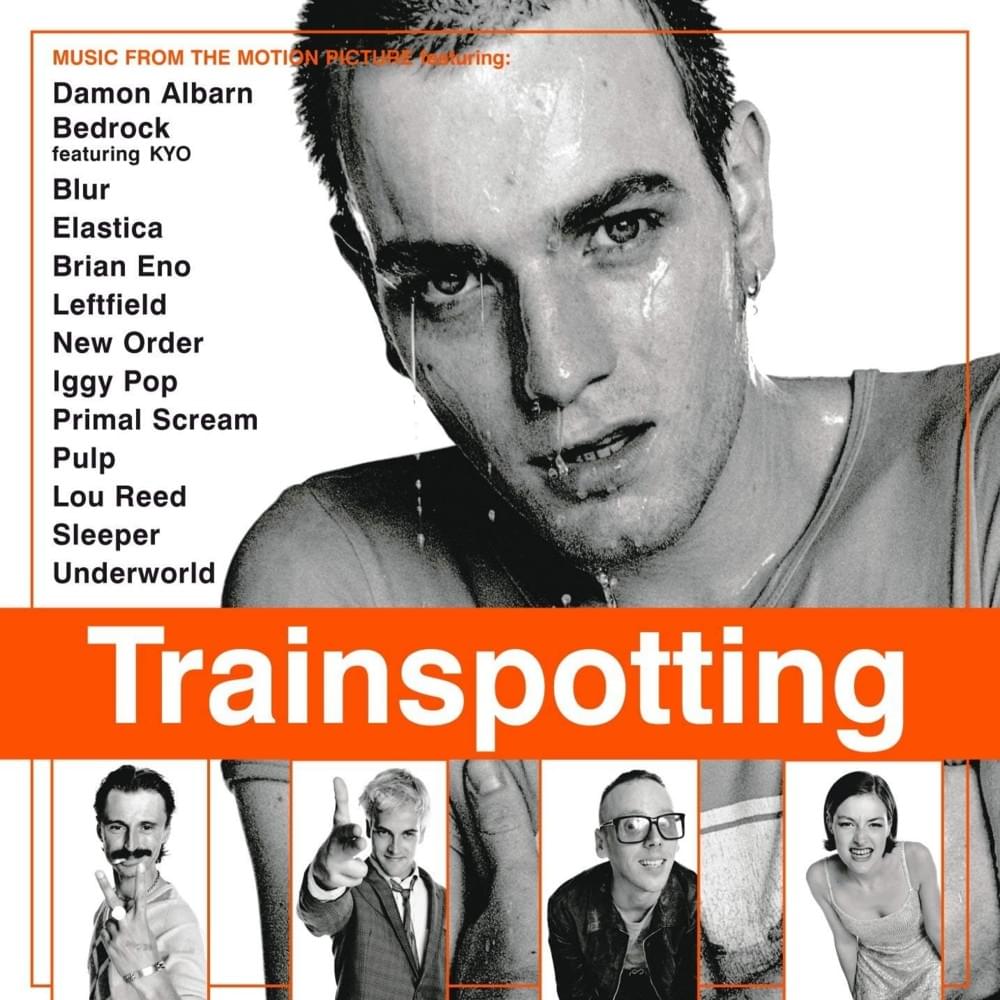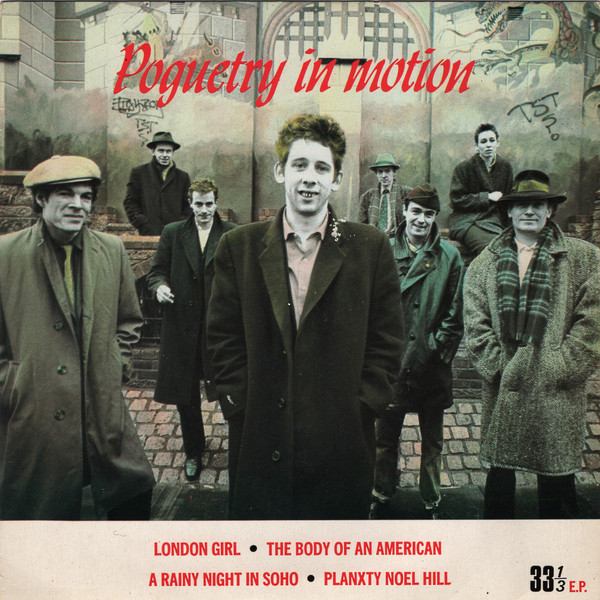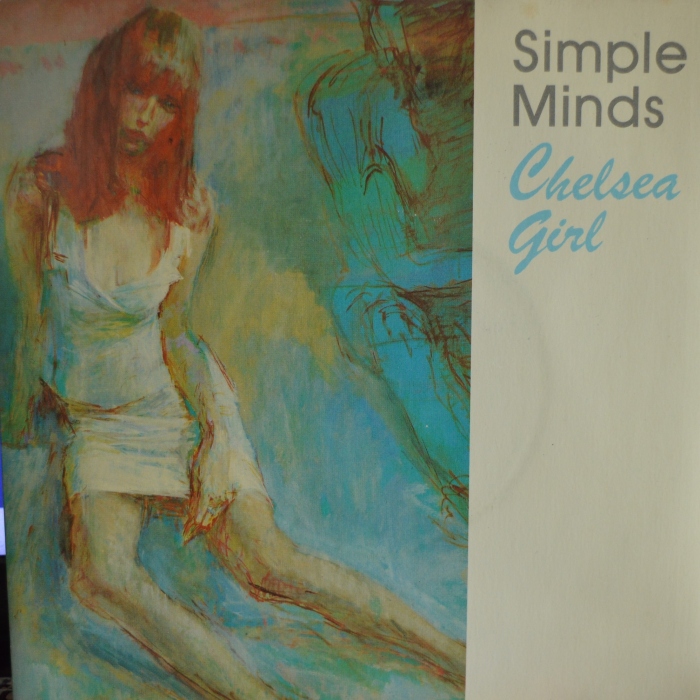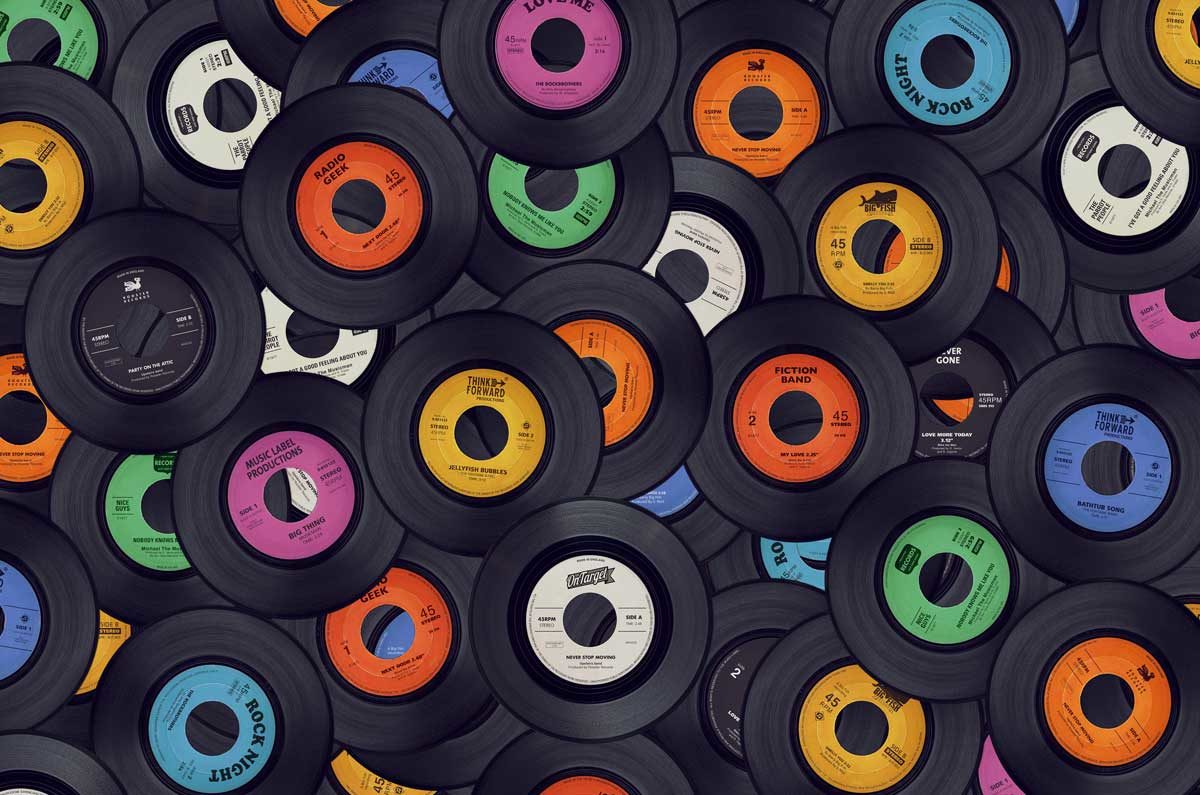On the back of the blog’s trip to London last week, I felt the city was big enough to warrant being the subject of a second batch of six tunes this week. Enjoy!
First Word
Last week’s collection of London tunes were recorded by artists who were born in the city and based their career there and so were uniquely placed to write about the heart of the city. This week’s playlist features tunes about the capital which were written and performed by artists from other places who took their inspiration from London. Well, apart from one…

Mile End – Pulp (1995)
So how did a band rooted in Sheffield write a song about London which appeared on the soundtrack of a movie about junkies in Edinburgh? Well, the last bit is explained by the compilers of the movie soundtrack looking for a particularly bleak song to use as the character Renton attempts – and fails – to build a new life in London far away from his troubles in Edinburgh. In choosing this track they could not have hoped for a better illustration of the squalid options available to the homeless, albeit the writers chose a particularly jaunty arrangement to go with the depressing lyric. That probably appealed to Irvine Welsh and the scenes it is used in are available here. In 2013, the soundtrack album to Trainspotting was ranked at No 13 in Rolling Stone Magazine’s greatest movie soundtracks of all time. But how did determined northerners Jarvis Cocker and his band come to write the song? It was recorded during the sessions for the album that gave them their major commercial success, 1995’s Different Class. It didn’t make the cut for the record and appeared only as the b-side to the fourth single from the Something Changed. Like other songs he has written, most notably their best known tune Common People, it was based on Cocker’s time at St Martin’s School of Art in London. After two unsuccessful albums with Pulp, in 1988 he took a sabbatical from the band to study Fine Art and Film. During this time Cocker found himself kicked out of his flat in Camberwell and temporarily homeless. Then he heard about an empty flat in a multi-storey in Burdett Road in Mile End and the song picks up the story from there. Cocker has since described this period as ‘the worst nine months of my entire life’ but decided to put his sorry tale of blocked sinks and cars being set on fire to a deceptively upbeat tune. The lyric is typically wry – “And now we’re living in the sky/I never thought I’d live so high/Just like heaven, if it didn’t look like hell” and it plays out against a rolling pub piano and shuffling beat almost in a music hall style. At three minutes in, the song appears to stop but oddly starts again with an extended subdued musical outro full of background noise and chatter with Cocker’s voice at the start telling someone “don’t do that” – presumably the sound engineer was pulling all the faders down thinking it was over!

A Rainy Night in Soho – The Pogues (1986)
Last week I mentioned the Pogues in my piece on Kirsty MacColl and, having visited her bench in Soho Square on Sunday with Lynn, I thought it was right to include this wonderful track about the same area of London in this week’s list. It’s also one of Lynn’s favourite London songs and she was disappointed it wasn’t on last week’s list! Although formed in London in 1982, the band are a collection of Anglo Irish and Irish musicians and bring their own unique view of the city to their music. Their debut single (on Stiff Records inevitably) was written by the inimitable Shane McGowan and called The Dark Streets Of London. It featured on their first LP for the label, Red Roses For Me. Elvis Costello was an admirer of the band and was brought in to produce a couple of tracks to be singles, the riot that was Sally MacLennane and the glorious A Pair Of Brown Eyes. He ended up producing the whole of their second LP, the wonderfully titled Rum, Sodomy And The Lash, released in 1985. EC was clear on his role: “I saw my task was to capture them in their dilapidated glory before some more professional producer fucked them up”. The third single from the record was a cover of father of Kirsty, Ewan MacColl’s Dirty Old Town – I was living in Leith at the time it came out and in those pre-gentrification days, it was an appropriate soundtrack. With the band’s star very much on the rise, in early 1986 Stiff released four tracks from the original Costello produced sessions as a 7inch EP under the title Poguetry In Motion which played at the DJ-catching-out speed of 33⅓ rpm. A really great package, it was the band’s first UK top thirty hit. While it was led by another McGowan song of the city, the atypically pop of London Girl, it’s this finely wrought, fan-favourite ballad that makes the playlist. One of Magowan’s best vocals, the piano framed melody and the tin whistle refrain lean into its yearning, romantic imagery: “Now the song is nearly over/We may never find out what it means/Still there’s a light I hold before me/You’re the measure of my dreams”. Costello fell out with Magowan over the latter’s insistence on using a muted cornet for the instrumental not EC’s preferred oboe. In this case, I think Shane got it right as the tumbling line of cornet notes at around 2:15 into the song is a standout moment. With their shared interest in narcotic substances and dark songs, Nick Cave recorded it in 1992 and he introduces it as part of a documentary before singing it here.

Chelsea Girl – Simple Minds (1979)
Famously formed from the ashes of Glasgow punk band Johnny & The Self-Abusers, Simple Minds came together in the city in December 1977 and picked their name from the lyric to Jean Genie – “So simple-minded/He can’t drive his module”. They built their reputation during a year-long residency at the long gone Mars Bar in Howard St. By the end of 1978 the settled line up of Jim Kerr, Charlie Burchill, Mick McNeil, Brian McGee and Derek Forbes started to work on songs for recording. I went along with a music-loving school friend Lynsey McAlpine to see them play a great show at the Glasgow School of Art in December 1978. My memory was that she ended up having a short relationship with bass player Derek Forbes after that show but maybe time is playing tricks on me – if you are out there, Bins, let me know! I wrote a review of the gig which I sent to the NME but they never published it – it went on about their similarities to Magazine, another favourite post-punk band of mine at the time. All these years later, listening to the debut LP Life In A Day from April 1979, I think I got it pretty much right – guitars and keyboards mixed with Kerr’s Howard Devoto style vocal delivery. Give it a spin and see what you think – it’s certainly miles from the stadium rock behemoth they grew into in the 80s. Chelsea Girl was the second single from the LP and to the surprise of the band’s growing fanbase in Scotland, this radio-friendly, hook-filled track failed to chart. With MacNeil’s keyboard figure counterpointing Burchill’s crunching guitar and everything building to solo before the stripped back outro, it had hit written all over it in my 19 year old head. Here they are playing it on the Whistle Test a few months after I saw them – I had a badge with Jim Kerr’s face on it with that haircut! At the time, I thought they were one of many Scottish bands who have looked south towards London for inspiration while still maintaining their inherent Caledonian spirit. But it turns out it was written about Nico and Andy Warhol’s New York film Chelsea Girls. Even though I was about 3,500 miles wrong, it’s included here as I have always associated it with London.

Brompton Oratory – Nick Cave & The Bad Seeds (1997)
Born further from London than anyone else on this playlist, Nick Cave moved to the city briefly in 1980 before relocating to Berlin and then to San Paolo where he spent time shuttling back to London before settling in Brighton in 2000. This song tells us that at some point in the late 90s, Cave must have visited The Church Of The Immaculate Heart Of Mary in Knightsbridge which is more commonly known as Brompton Oratory, one of London’s most spectacular churches. By the late 1990s, some of the ferocity of Cave’s writing and performing with the Bad Seeds (and before with The Birthday Party) was starting to wind back. The sombre, minimalist tone of 1997’s The Boatman’s Call album marked a departure for the band and foresaw the increase in sparse arrangements and more personal songs in their work over the last 20 years or so. The LP features Cave’s voice set against a stripped back sound and lyrics where lost love features strongly. It contains the beautiful Into My Arms, one of his most popular songs which he sung at his friend Michael Hutchence’s funeral. It also has People Ain’t No Good which was included on the eclectic soundtrack for the movie Shrek 2 and the hopelessly lovesick (Are You) The One That I’ve Been Waiting For? The track on the playlist is not short of it’s lovesickness but seems to be more about the ideas of love and faith and how the two reconcile with each other. The visit to the church captures both its majesty and loneliness in a typically baroque eulogy where Cave wishes he could be made of stone (like the stone apostles gazing down) so that he wouldn’t have to feel the pain and loneliness of the breakup he’s been through. With a light percussion track, the organ rightly dominates the musical accompaniment leaving Caves baritone to use it’s sound and his religious imagery to create a complex and emotionally charged narrative. “No God up in the sky/No devil beneath the sea/Could do the job that you did, baby/Of bringing me to my knees”. It will certainly not win over any Cave doubters among the blog readership but will please those of us who find him an endlessly fascinating artist.

Towers of London – XTC (1980)
So Swindon is in deepest darkest Wiltshire about 80 miles west down the M4 from London and the city’s most famous musical sons are XTC. Formed among local musicians in 1972, their name evolved from Star Park to Helium Kidz and, in 1976, they were about to rename themselves The Dukes of Stratosphear when leader Andy Partridge hit on the idea of the visually impactful XTC. By this point the band were starting to get gigs up in London and John Peel saw them perform at Upstairs at Ronnie Scott’s and offered them a session on his Radio 1 show. Although the group did not fit into the dogma of the punk ethos, the movement swept many bands along into records deals and they signed with Virgin. Their first LP White Music was full of angular, jerky pop and quirky, clever lyrics and I saw them play it live in a memorable show at the QMU in Glasgow in September 1978 along with their series of great singles that year (including the brilliant This Is Pop?). Their musical style developed with the lyrics remaining quirky but the sound becoming more accessible, finally bringing them the hit the record company were after in Making Plans For Nigel in 1979. This set them up for a 12 year career of critically acclaimed albums which featured a series of minor hit singles, including this track from 1980. Written by Partridge, he subsequently described it as an “ode to the sad romance of London’s Victorian-era navvies” who came across the Irish sea during the famine to labour on low wages to build the canals, roads, bridges and railways that Londoners still use today. “Rain is the tears of the ‘never never’ navvies who cry/ For the bridge that doesn’t go in the direction of Dublin.” The song opens with the sound of a hammer hitting steel which is then incorporated into the clanging rhythm track throughout. It is particularly clear as the song drops into the Latin “Londinium” outro, as Partridge emphasises that the city’s history has been built on the sweat of labour for more than just 150 years. As I walked up Norton Folgate last week, among the vertigo-inducing modern towers of the City of London, I was struck by the number of Irish contractor names that were on the construction site hoardings. Londinium indeed…

Primrose Hill – Loudon Wainwright III (1997)
There are a couple of London songs which were never under consideration for the playlist, primarily as I just can’t listen to them now due to their massive overexposure by lazy radio station playlisters. My fellow Buddie, Gerry Rafferty’s Baker St is one, and the other is Ralph McTell’s well-meaning but dreary Streets Of London. Contrast the obvious nature of McTell’s lyric about homelessness in the capital with the much more convincing imagery painted in this great song by Loudon Wainwright III. As the New York based, folk singer father of international musicians Rufus and Martha, he is probably best known for his turbulent relationship with them and their mother Kate McGarrigle, another notable folk musician. That Martha would title a song inspired by her father as Bloody Mother, Fucking Asshole tells you they have not seen eye to eye at times over their lives. I don’t know a great deal about LW3’s musical career which even he admits has been patchy. But when I hear him, I really do like his style of writing which can be witty, as on Unhappy Anniversary, or painfully incisive as on the brilliant Pretty Good Day. The last track on the playlist is a sad song about one of north London’s most popular beauty spots and was on his 1997 album Little Ship. However, the studio version is not on Spotify, so the 2003 live recording has been used instead. He picks out some lovely melodic licks on his acoustic while he sings his melancholy tune of living rough as a drunk on Primrose Hill: “Sun’s been shining down on my hillside bed/That’s not the only reason my face is so red”. The strain in his slightly reedy voice adds to the feeling of hopelessness and the lyrical hits just keep coming with “A pretty young mother goes by pushing her pram/Her little baby leans out just to see what I am” being a particularly striking image. He was still performing this song when he toured the UK last year at the age of 75 and by the time we reach the end of it we really feel the message from the streets of London – as Loudon says so well: “When you come up to London, it’s something to see/It’s somewhere to go but no place to be”.
Last Word
My mate Mark expressed his disappointment that there was no Chas and Dave track on last week’s blog, a shortcoming that I have not taken the trouble to fix with this week’s London songs part 2. However, as a teaser for a future special version of the blog, I can confirm I have an unusual cover of one of the rockney duo’s songs parked up and ready to deploy. Be still your beating hearts….
The Master Playlist has now had its second metropolitan update and remains at your service for soundtracking weddings, funerals and bar mitzvahs at the usual link below.
AR

Leave a comment